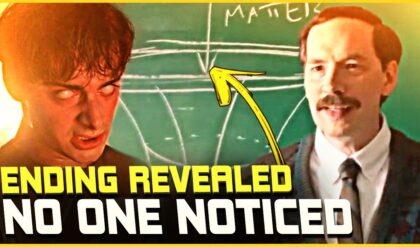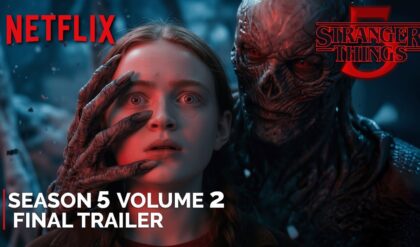Jodie Foster won an Emmy Award for her role in the HBO series True Detective: Night Country. (Michele K. Short/HBO)
Jodie Foster wasn’t planning to be an actress into her 20s, let alone her 60s.
“I never thought I’d be an actor when I grew up, and my mom was quite clear about that,” the two-time Oscar winner said during a True Detective Q&A in Los Angeles on Thursday. “She would always say, ‘So are you gonna be a lawyer or a doctor?’”
The actress, who started her career at the tender age of 3, has since gone on to win numerous accolades, including, most recently, an Emmy Award for her work on the HBO series True Detective: Night Country. Foster and co-star Kali Reis play detectives in Alaska who are investigating the disappearance of eight men at a research lab and its connection to the Indigenous community.
Foster explained that when she was younger, the prevailing wisdom was that child actors would “never grow up to be real actors” because it was such a difficult path.
“So [my mother] would always say that my career would be over by the time I was 18,” she explained. “When I went to college, I just expected that would be the end of everything and then I’d have to figure everything out.”
When her mother warned her again that her career would be done at 40 — even though she had already secured multiple Oscars and Golden Globes — she said she got “very, very nervous again” but then realized, “here I am.”
At 62, Foster said she’s “enjoying doing the older acting thing.”
“There’s something about the grittiness and the reality of it and not having the pressure to, I don’t know, live up to some kind of weird celebrity status thing,” she added. “So, for me, the happiest years of acting have been, like, in the last 10 years.”
The actress is bringing some of that grittiness to her role as Detective Liz Danvers in True Detective, a character who has mixed-Indigenous children and whom she described as “the racist asshole that lives in all of us.”
Kali Reis (left), here with Aka Niviâna, delved into other Indigenous cultures outside of her own in True Detective: Night Country. (Michele K. Short/HBO)
Foster said that in a series that touches on the Missing and Murdered Indigenous Women crisis, she wanted to step back a bit and center Reis’s role as a mixed Indigenous woman who is finding out more about her Iñupiat community. Reis herself is a member of the Seaconke Wampanoag tribe.
“The most important thing was that the Native story be the central story and that we are here to serve that,” Foster said.
Foster said she approached showrunner Issa López with suggested changes for her character and the show — something López initially said she was apprehensive about.
“Jodie was very clear this woman should have started as an asshole” before a tragic loss affects her character, López said.
“You hear so many times that sometimes the notes from actors can be difficult,” she continued. “But when [Foster] said this, instead of being like, f*** my life, instead of that, what happened is, [I thought], ‘Oh, that’s interesting.’”
Foster said it was “very important for me for the story to be told with Kali’s character as the central character, and then to reimagine everything around that.”
For Reis, that meant delving deeper into other Indigenous cultures outside of her own.
“Being Indigenous, especially being mixed Indigenous, doesn’t mean that you know everything about being Indigenous,” she said. “It’s not one-size-fits-all.”
Reis approached Indigenous advisers on the show because she wanted to do it “the right way.”
“I just asked them, ‘What do you want to see onscreen? How do you want to see yourself portrayed?’” she explained. “‘How did you grow up? Tell me some funny things, some dark things, everything that you can share with me, because I don’t want to assume. I want to get it right.’”
She also praised Foster for her work and support while admitting she was “hella starstruck” when they first met.
“[Foster] just came in with that smile and just wanted to work and find out how we could tell this amazing story,” Reis said. “But it was like, ‘This is cool because we’re all in the same kind of playing field.’”
That said, Reis added, “It was great, but I was terrified. She’s a little package of just greatness.”





